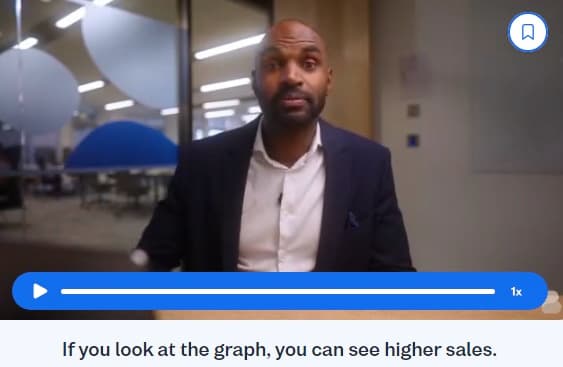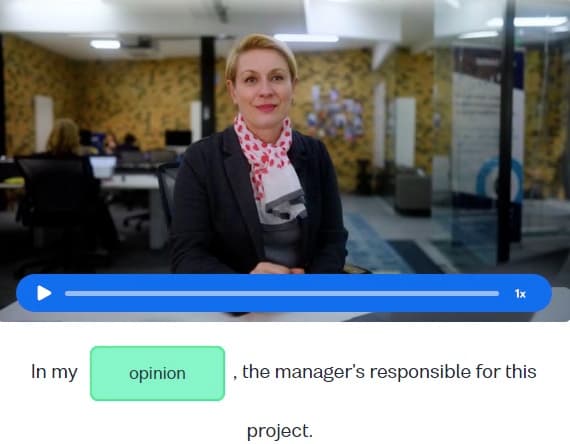I want to learn...
Author:

Barney Meekin
Conditional sentences are an important part of everyday communication. They allow you to discuss dreams, wishes and regrets. You can use them to talk about truths, realistic present and future situations, and unlikely or impossible present, future, and past situations.
In this guide, we’ll show you exactly how to use conditional sentences with lots of helpful examples so you’ll be able to talk about your wishes and dreams in no time.
What are conditional sentences?
Conditional sentences help us to talk about the results of hypothetical or known factors. They usually start with “if” or “when” and you use them to speculate about what will or might happen. Conditional sentences are useful in everyday conversation. You can use them to make plans, express regrets, or discuss dreams.
What are the five types of conditional sentences?
There are five types of conditional sentences in English. Let’s take a look at each of them and see some examples for each.
1. Zero conditional sentences
Use zero conditional sentences to talk about facts and general truths. The structure is simple:
If / When + present simple, present simple.
With zero conditional, we’re not talking about possibility or hypotheticals. We’re talking about certainties. These results always happen when the condition is met. Here are some examples.
"If water reaches 100 degrees Celsius, it boils.”
“When the sun rises, it becomes light.”
“If it rains, things get wet.”
“When I drink alcohol, I feel sick.”
2. First conditional sentences
Use first conditional sentences to talk about realistic and possible future situations. These situations aren’t guaranteed to happen, but they are very likely. Here’s the structure:
If + present simple, will + base verb.
With the first conditional we can predict what will realistically happen in the future when the condition is met. Here are some examples.
"If it rains tomorrow, we will cancel the picnic."
“If you don’t exercise regularly, you will put on weight.”
“If you fall down the stairs, you’ll hurt yourself.”
“If you let go of the balloon, it’ll float away.”
3. Second conditional sentences
Use the second conditional to talk about future or present situations that are impossible or very unlikely. The structure is:
If + past simple, would/might + base verb
The second conditional lets you talk about situations that are interesting but might never happen. This is how you can talk about your wildest dreams and let your imagination run wild. Here are some examples.
"If I won a million dollars, I would travel the world."
“If I had more time, I would learn the piano.”
“If I didn’t live here, I’d live in Spain.”
“If I could fly, I’d never come home.”
4. Third conditional sentences
Use the third conditional to talk about hypothetical situations from the past. The structure is:
If + past perfect, would/might have + past participle
You can think about how your life would have changed if things had been different with the third conditional. Got regrets? This is how you can talk about them. Here are some examples.
“If I had known about the traffic, I would have left earlier."
“If I had studied more, I would have got a better grade.”
“If I hadn’t eaten those oysters, I wouldn’t have been sick.”
“If I hadn’t met you, we wouldn’t have got married.”
5. Mixed conditional sentences
Use mixed conditional sentences to talk about conditions and results in different time frames. To make them, you need to mix second and third conditionals. Here’s the structure:
Past & present conditional
If + past perfect, would + base verb
Present & past conditional
If + past simple, would/might have + past participle
Mixed conditional sentences show results in the present that result from conditions in the past (and vice versa). Here are some examples.
"If I had studied harder in school, I might have a better job now."
“If I hadn’t committed that crime, I wouldn’t be in prison now.”
“If I wasn’t so busy, I would have gone out yesterday.”
“If I knew how to play tennis, I might have joined the tennis club in my hometown.”
Other conditionals
"Unless"
"Unless" is common in the first conditional and it means “if not.” Here’s an example:
“Unless you buy a ticket in advance, you won’t be able to attend the show.”
“Unless it rains, I’ll go to the beach tomorrow.”
Imperative conditionals
Imperative sentences are orders or requests that start with a verb and don’t include a subject (for example, “Be quiet!” ( Learn more about imperatives here). You can add conditions to them with “if.” Here’s an example:
“If you go to the shop, get me some chocolate, please.”
“When you enter the house, take your shoes off.”
“If you want to go out, tidy your room first.”
Conditional word order
You can change the order around for all of the conditional sentences above without changing the meaning. When you speak, it doesn’t matter which order you use — nothing changes. When you write though, you need to change the punctuation depending on the order. When the if-clause comes first, you need a comma. When the if-clause comes second, you don’t need a comma. Here’s an example.
“If I wasn’t scared of heights, I’d help you paint the roof.”
“I’d help you paint the roof if I wasn’t scared of heights.”
Other ways to talk about hypotheticals
Sentences with “if” aren’t the only way you can talk about hypothetical situations though. Add variety to your sentences with these words too.
"Wish"
Use "wish" when you desire or want something that isn’t true. You can also use it to talk about regrets. Similar to the second or third conditional, “wish” deals with hypothetical — and sometimes impossible — situations. Here are some examples:
"I wish I were on a beach."
“I wish I was young again.”
“I wish I had never met him.”
“I wish I’d taken that opportunity.”
"As long as"
You can use "as long as" instead of “if” in a sentence to emphasize the importance of the condition. For example:
"You can stay out late as long as you get up for school tomorrow."
“I’ll tell you what happened as long as you promise not to tell Sara.”
“As long as you study hard, you’ll pass the test.”
“As long as I have enough time, I’ll drive you to the airport.”
“If only”
“If only” is a versatile phrase that has three meanings. You can use it to talk about wishes, regrets, and reasons. Here are some examples.
“If only I had more money.” (wish)
“If only I’d listened when they told me to be careful.” (regret — this person didn’t listen and it had a negative result)
“She talks to me a lot, if only to find out information about my brother.” (reason — the only reason she talks to this person is because she wants to know more about his brother)
"Even if"
Use “even if” to show that there are two possibilities (the condition will be met or the condition won’t be met) that lead to the same result.
"I will finish the book even if it takes all night." (If it takes all night or if it doesn’t take all night, this person will finish the book.)
“Even if you buy her flowers, she won’t go out with you.” (It doesn’t matter if you buy her flowers or not because she won’t go out with you.)
“I wouldn’t go there even if I was paid to.” (This person isn’t going whether you pay them to or not.)
“Even if the weather’s bad tomorrow, we’re going out.” (This person doesn’t care about the weather, they’re definitely going out.)
Famous conditional sentence examples
Let’s take a look at nine conditional sentences from literature, speeches, music, and movies.
"If there were no bad people, there would be no good lawyers." - Charles Dickens, The Old Curiosity Shop
"If I only had a brain" (Second Conditional) - The Scarecrow, The Wizard of Oz
"If freedom is to survive and prosper, it will require the sacrifice, the help, and the fortitude of all of us." - John F. Kennedy (1961)
"If we are true to ourselves, we can not be false to anyone." (Zero Conditional) - William Shakespeare, Hamlet
"If I fell in love with you, would you promise to be true and help me understand" - The Beatles, If I Fell
"If you want to know what a man’s like, take a good look at how he treats his inferiors, not his equals." - J.K. Rowling, Harry Potter and the Goblet of Fire
"If a book is well written, I always find it too short." (Zero Conditional) - Jane Austen
"If we are not careful, our colleges will produce a group of close-minded, unscientific, illogical propagandists consumed with immoral acts." - Martin Luther King Jr., The Purpose of Education (1947)
"Unless someone like you cares a whole awful lot, nothing is going to get better. It's not." - Dr. Seuss, The Lorax
Master conditional sentences and boost your communication skills
Now you can see how conditionals are an important and useful part of everyday communication. They allow you to discuss truths, likely situations, and impossible situations. And they give you the tools to talk about your hopes, dreams, wishes and regrets. Using conditional sentences will really take your English to the next level. If you’re looking for additional practice, explore our lessons on conditional sentences on Busuu today.
AUTHOR

Barney Meekin
Newlanguages


